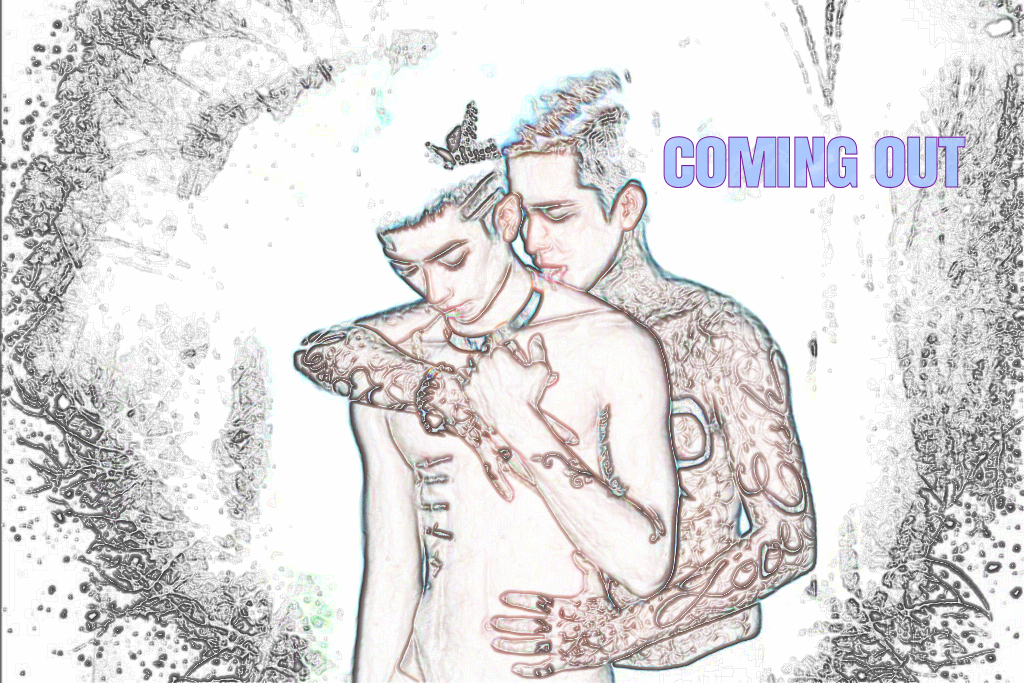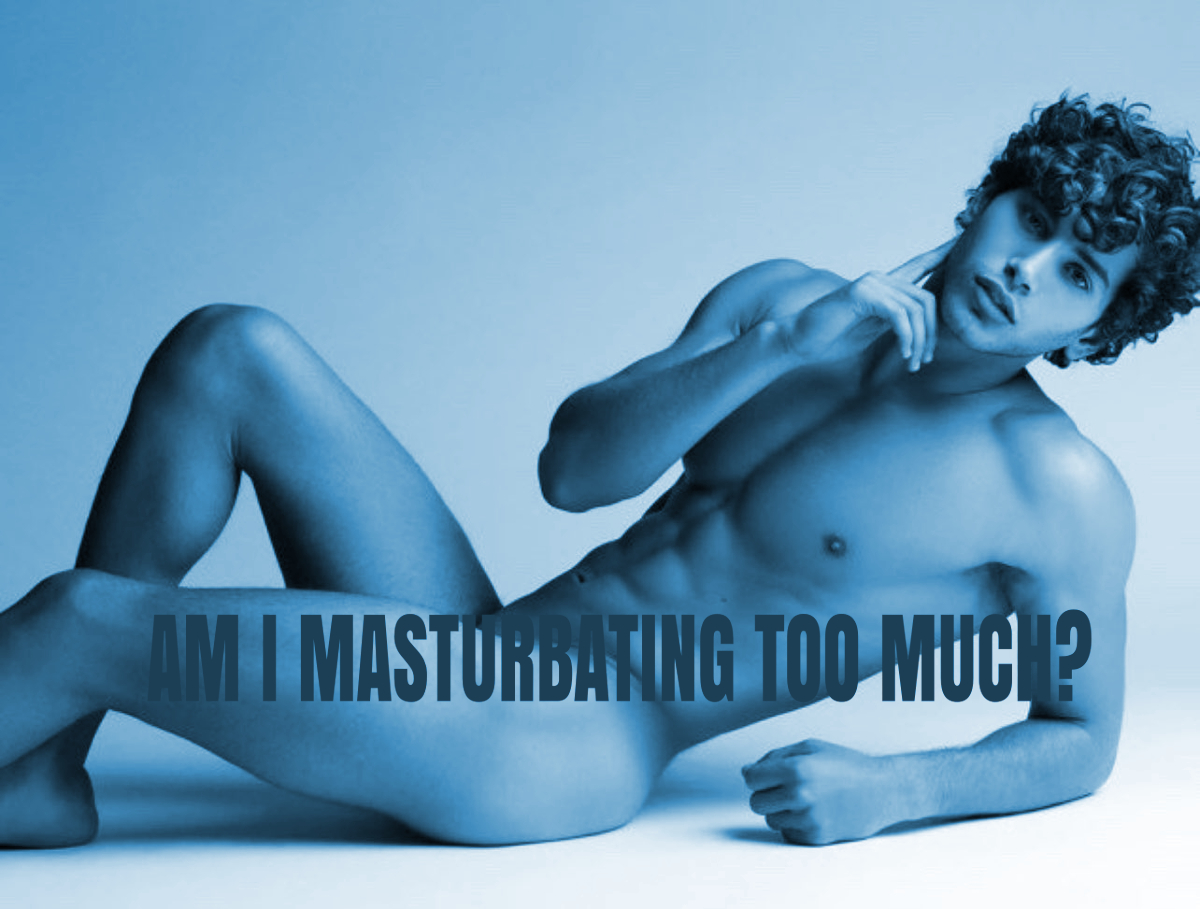By Stuart Haggas @GetStuart

Evidence in fact shows that gay and bisexual men are more prone to depression and suicide than our straight peers. In 2011 Stonewall conducted the world’s largest survey ever of gay and bisexual men’s health needs, with 6,861 respondents from across Britain.
The survey found that 50% of gay and bisexual men had felt their life was not worth living, compared with 17% of men in general – with 46% of gay and bisexual men saying they’d felt this way within the last year.
27% of gay men and 38% of bisexual men said they’d considered taking their own life in the last year, even if they wouldn’t do it, compared with just 4% of men in general.
The survey also found that 3% of gay men and 5% of bisexual men had attempted to take their own life in the last year, compared to just 0.4% of all men.
Teenagers are even more vulnerable, with 10% of gay and bisexual men aged 16 to 19 having attempted to take their own life in the last year.
These statistics are not surprise
FS Magazine’s editor Ian Howley tells me that these statistics don’t surprise him. “It’s more worrying that in this day and age gay men still feel like they have nowhere to turn,” he elaborates. “The ‘gay journey’ can be quite difficult for many gay men, while some find it easy. When I was 12 years old, I started to realise that I was gay and I hated it. I thought everyone was going to reject me.
I thought my family would disown me. I simply didn’t want to be gay. Over the space of a year I fell into a deep depression and at age 13 I tried to take my life for the first time. I failed, but it did not stop what was going on in my mind. The depression got worse and I went on to try to take my life twice more. I was 16 at the time of my last attempt.
“Why did I do it? It was mainly down to fear. I feared being ‘gay’ and everything that went with it. I just wanted to be ‘normal’ and like everyone else around me. And I think that’s the case for lots of young gay men who are finding themselves. Heterosexual children are brought up to think that they will find someone, get married and have children themselves.
As a gay teenager, I thought that being gay was a bad thing — there was no future for me, I was never going to have children and was going to be alone forever. When you can’t see a future for yourself, why would you value your life? I believe that many young gay men, even in 2013, still can’t see a future for themselves, which explains why they are more likely to do drugs, drink more and attempt suicide.”
We are still condemned by many and we feel the impact
“We live in a society which is rapidly moving towards full legal equality for lesbians and gay men,” adds GMFA’s Matthew Hodson,” but as the recent debates over gay marriage have established, there are many who would take away these rights, and who are unafraid to voice their disapproval of gay people. Rejection by your family or condemnation by your church is all too common.
Of course this has an impact on the way that we feel about ourselves.”
Founded in a room above a bookshop near Kings Cross station in 1974, the London Lesbian & Gay Switchboard today has 180 volunteers trained to handle all manner of calls from 10am to 11pm every day. “LGBT people are more likely than heterosexuals to be discriminated against, to be bullied at school or in the workplace, to be isolated, to have abuse shouted at them in the street,” their spokesperson tells me.
“Some people find that their families or communities reject them for being gay, and others find it hard to come out to their friends. If they are religious, they may find that their religion rejects LGBT people or asks them to reform or remain celibate. All of this takes an emotional toll on people.
Thankfully, our society is changing and becoming more tolerant, and LGBT people now have more rights than ever, in everyday life, in the law and in employment.
However, as the recent row over gay marriage demonstrated, there is still a lot of homophobia out there (sometimes masked as ‘traditional values’).
There is still queerbashing (the recent attacks in east London) and school bullying is still a very serious problem.”

HOMOPHOBIC, NOT TECHNOPHOBIC
Although Ian acknowledges that things have changed quite a bit since he was a teenager, the underlying issues that contributed to his depression and suicide attempts haven’t been eradicated – but they’ve adapted to the 21st century.
“I would barely talk in school because I thought people could tell from the way I talked. I even watched how I moved my body so as not to give out signs. But when I was a teenager, bullying was left at the school gate,” Ian explains. “Now it can be a 24-hour experience.
Young gay men have to deal with so much more shit these days — Facebook bullying, YouTube clips being shared amongst other young people. Your bullying experience stays with you all day every day. Many young people find it difficult to escape. It’s no wonder then that young gay people are becoming depressed from bullying. This is something that we have to tackle.
The digital age has made it so much easier for young gay men to be bullied because of their sexuality. And many young gay men don’t know how to deal with this. We need to send out a message that this type of behaviour is not acceptable.”
The It Gets Better project was founded in the United States in 2010. Its goal is to help prevent suicide among LGBT youth by utilising the internet in a positive way.
The initial idea was for gay adults to upload videos of themselves to convey the message that the lives of these teenagers would improve, thus helping them feel less isolated and alone.
People adding their voice of support
As the campaign grew in momentum and stature, people from many different countries and walks of life added their voice, including US President Barack Obama, British Prime Minister David Cameron, and celebrities like Katy Perry and Lady Gaga.
“What I love about the It Gets Better campaign is that it does truly reflect most people’s experience of coming to terms with their sexuality,” says Matthew. “Most people, when they’re young, are desperate to fit in, be accepted.
If you know that you’re different from most of your friends, because you’re lesbian or gay, it can be very distressing, particularly with the high levels of homophobic abuse that are bandied around classrooms and the schoolyard.
As you get older most people learn to cherish the things about them that make them special, that make them unique. At the same time we might find that a lot of our fears about being gay were unfounded: we still have families and friends that love us, we can form long-lasting relationships, even raising a family of our own is not ruled out.
And so it does get better, and I hope that hearing that provides comfort to those young people who are bullied and isolated and struggling as a result.”
A VALUABLE LESSON
Gay teenage suicide gets deserved attention in mainstream media. The likes of Stonewall do serious campaigning on this issue, and there are groups, foundations and charities in the UK and internationally such as the Ben Cohen StandUp Foundation and the Trevor Project that work specifically in this area – but it’s only part of the picture.
“Stonewall have done a magnificent job with this but I think the buck lies with us all,” explains Ian. “And not just from a mental health aspect, but in terms of the health of all gay men as they get older. There is research to state that if gay men value their lives they are more likely to look after themselves, by not abusing alcohol, doing drugs and having riskier sex.
You can tell a person all you like to wear a condom, but if that person doesn’t value their life then why would they use protection while having sex? This is why the development of how young gay teenagers grow up to be young gay men is a job for us as a gay community, no matter what the aim of an organisation is.
If we can all work together to make sure gay teenagers develop into stable and healthy adults then they are less likely to attempt suicide, abuse alcohol, do illegal drugs and put themselves at risk of HIV and other STIs.”
“The INSIGHT study, which looked at differences in attitudes between those gay men who became HIV-positive and those who did not, found that men with low self-esteem were more likely to acquire HIV,” adds Matthew.
Struggling just to carry on with life
“In many cases, men become infected not because they think HIV isn’t serious, but because they think that their own lives are not valuable. Safer sex isn’t just something that happens to you, you have to choose it and take active steps to ensure that you maintain it.
If you are struggling just to carry on with life, it’s easy to see how that can translate into not taking precautions to protect your own health.”

SHARE YOUR CONCERNS
When you’re in so fragile a mindset that you’re feeling depressed and contemplating suicide, you’re vulnerable in all sorts of ways – and although you may choose not to take your own life, you may still choose to use drugs or alcohol or not to use condoms. So what can you do to shift your mind into a better place?
“I would say to any person who is struggling with feelings of depression, whatever their sexuality or HIV status, don’t try to go it alone,” says Matthew. “Talk to someone, whether it’s a friend or a professional counsellor. There are people and services who can help.”
Sona Barbosa, Counselling Team Leader at the GMI Partnership, agrees: “Look for support immediately, whether through family and friends (unfortunately not always possible), or through a professional. I would advise both! Isolation is the worst solution. There are several organisations providing LGBT services, including GMI, which provides mentoring and counselling services to gay men.”
“At London Lesbian & Gay Switchboard, we do get calls from LGBT people who are suicidal, and who have thought seriously or even attempted to take their own life, and we take these calls very seriously,” their spokesperson adds. “Our volunteers receive specific training on how to take such calls. But thankfully suicide calls are relatively rare.
More often, we take calls from people who are experiencing difficulties in their lives, but not so bad that they are contemplating suicide. The single most common reason people phone is that they’re coming out, and while that can be a difficult experience it can also be a very happy one.”
Nonetheless, in 2012 almost 10% of calls taken by volunteers at LLGS related to depression and suicide (these calls can be subdivided to: anxiety 4.5%, depression 3.6%, suicide 1.1%, self harm 0.6%).
How to empathise?
“In terms of some of the emotions that come up for callers, there is a spectrum, from feeling a bit anxious through to serious depression and suicide, but each call is unique. Our volunteers are trained in how to empathise with callers. We would want to offer support to that caller, talk through how they’re feeling and the reasons they are feeling that way.
We always seek to recognise the emotions that are coming up and explore ways in which the caller can deal with those emotions, as well as practical things they can do perhaps in their lives to help them deal with their situation. We are also positive about being LGBT. But we don’t tell people what to do – we talk through the caller’s options, and how they might start to feel better, but we always leave it to the caller themselves as to what they do next.”
DEPRESSION + HIV
Another factor is that discovering you’re HIV-positive can in itself lead to depression and thoughts of suicide. “For most people, being diagnosed with HIV is a life-changing experience and the hardest part of adjusting to life with HIV isn’t the physical issues – it’s the emotional ones,” GMI’s Sona Barbosa explains. “Finding out that you have HIV is likely to have a whole range of emotional and practical implications; you’re likely to be experiencing strong feelings at this time, such as feeling depressed.
Depression is a very common condition for people diagnosed with HIV. It makes you feel sometimes helpless as well as hopeless, therefore more vulnerable.”
GMFA’s Matthew Hodson adds: “There have been huge advances in the medical treatment of HIV over the last decade, and people with HIV diagnosed at an early stage have now a near normal life-expectancy. However the stigma attached to being HIV-positive remains huge.
When people contemplate suicide it’s usually down to a combination of factors. It’s easy to see that having an incurable, potentially life-threatening, widely stigmatised disease will add to an individual’s burden. It’s hard to get precise figures but I’ve seen a number of studies from around the world talk about suicide as a major cause of death amongst people living with HIV.”
When someone is diagnosed with HIV they should be offered care and support. “Sometimes though that individual may not be ready to accept such support at the time but may need it later,” says Matthew.
CHALLENGE YOURSELF
If you do then there are many services out there that can help you overcome it. I made it through depression and suicide attempts by myself, but I’m a lucky one. Not many have the strength I had, so please tell someone how you’re feeling and overcome it before you make the same mistakes I did. I went from not wanting to be gay, to trying to take my life because I was gay, to now being the editor of a gay men’s health magazine.
What I’ve learnt from that whole process is that all it takes is a small bit of courage and your whole life can change.”
“The biggest challenge we face in beating suicide and depression in gay men is realising that they are the only people who can overcome it. No matter what any of us want, if someone who is depressed doesn’t want help then there is very little we can do,” admits Ian. The turning point for Ian was when he accepted his sexuality.
“When I went through my depression, I didn’t know I was depressed. I didn’t know what depression was or how to deal with it. I think everyone needs to educate themselves on depression, spot it in themselves, and how to deal with it. Spot it in yourself, and If you are depressed and feeling suicidal, then the best advice I can give is to ask yourself if you want to beat it.
Symptoms of depression include:
- Feeling sad or down a lot of the time, even when there’s no reason.
- Feelings of despair that you can’t escape.
- A lack of feeling or emotion. You don’t feel anything and have lost the ability to feel happy.
- Feeling exhausted and lacking energy all the time.
- Continuous and long mood swings, when you change from feeling happy to despairing, sorrowful or angry and irritable.
- The things that used to give you enjoyment or make you happy leave you feeling numb or uninterested.
- Withdrawal from or avoiding family and friends.
- Inability to concentrate or a loss of interest in your work.
- Putting on or losing a lot of weight.
- Different sleep patterns. You might not be able to fall asleep or you can’t get up in the morning.
- Feeling so bad that you think it would be a relief to die or hurt yourself.
For more info on depression and how to deal with it we recommend visiting NHS pages and GMFA pages for valuable information















